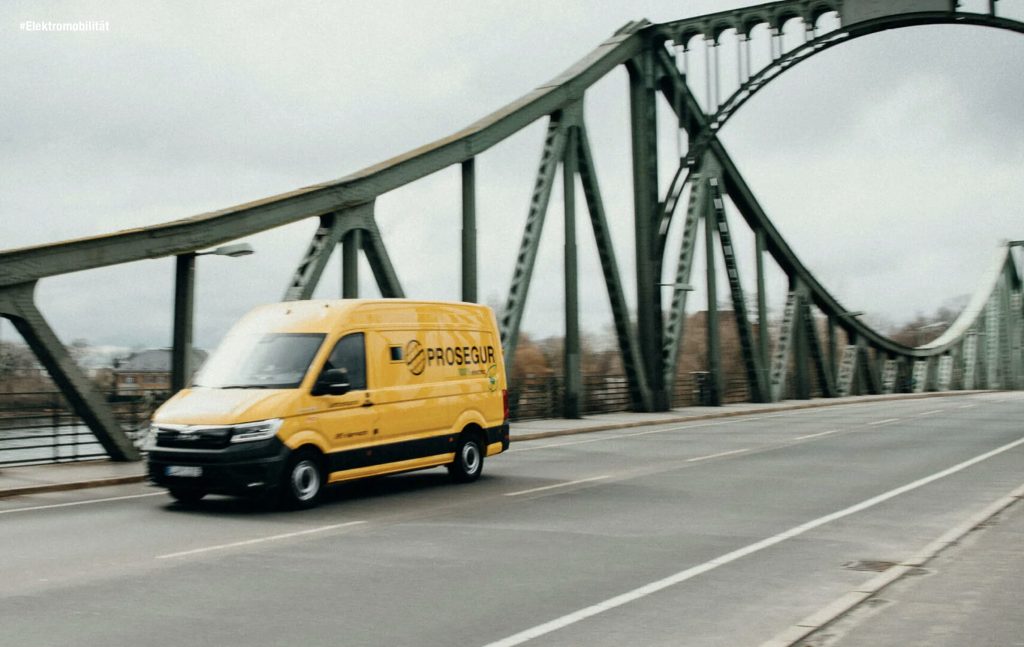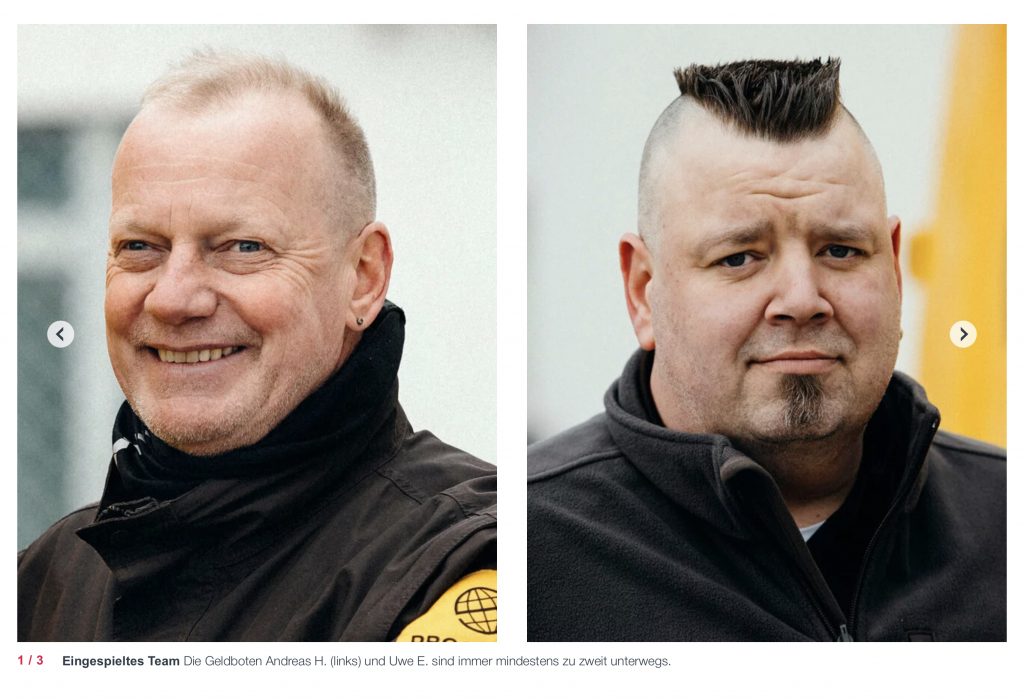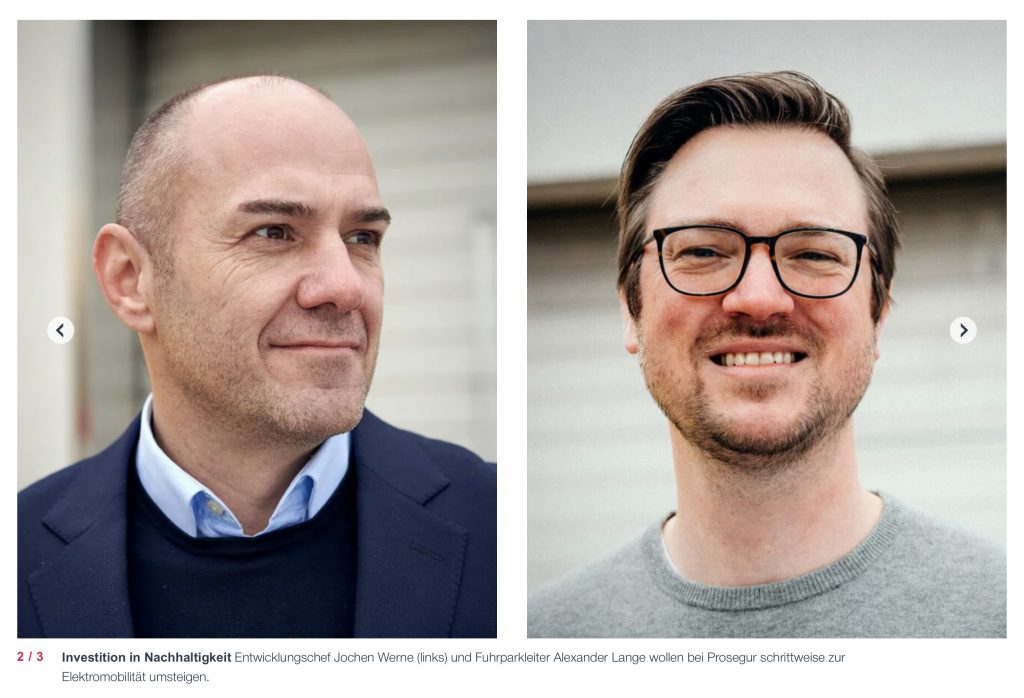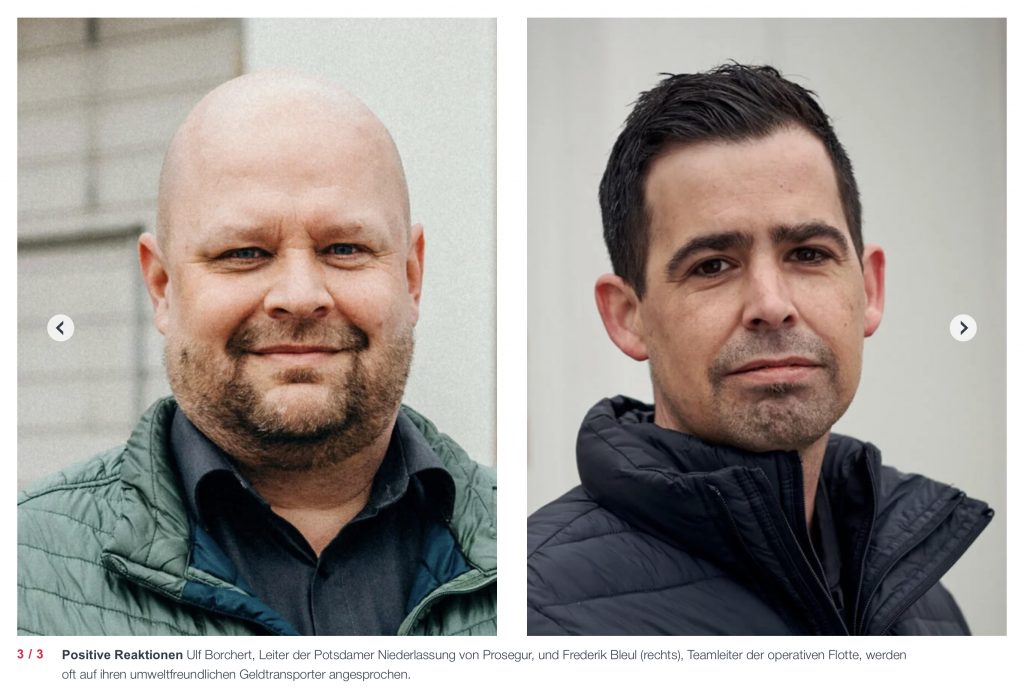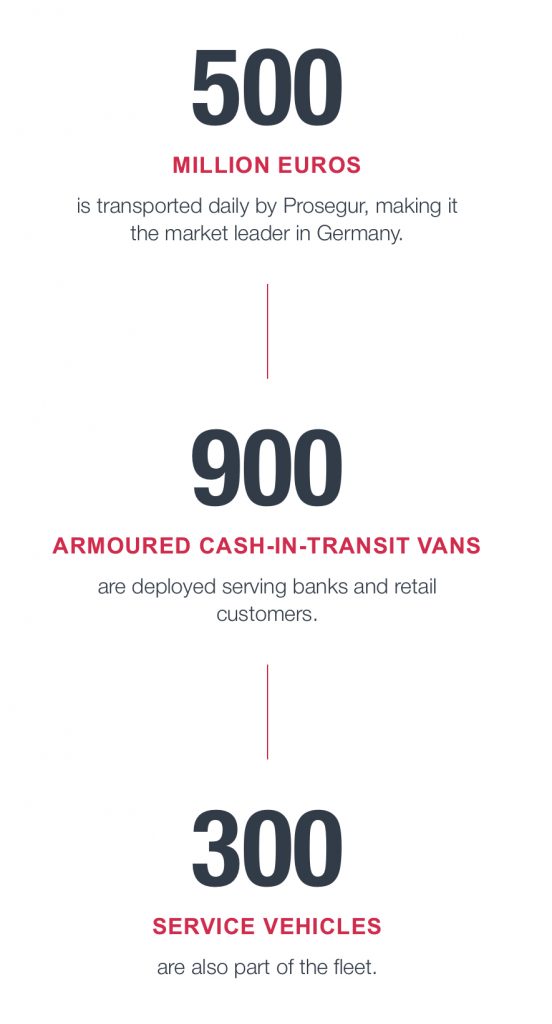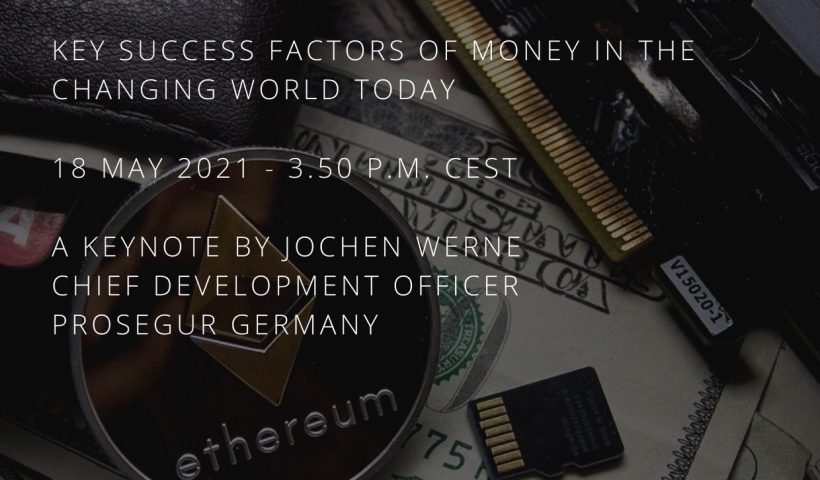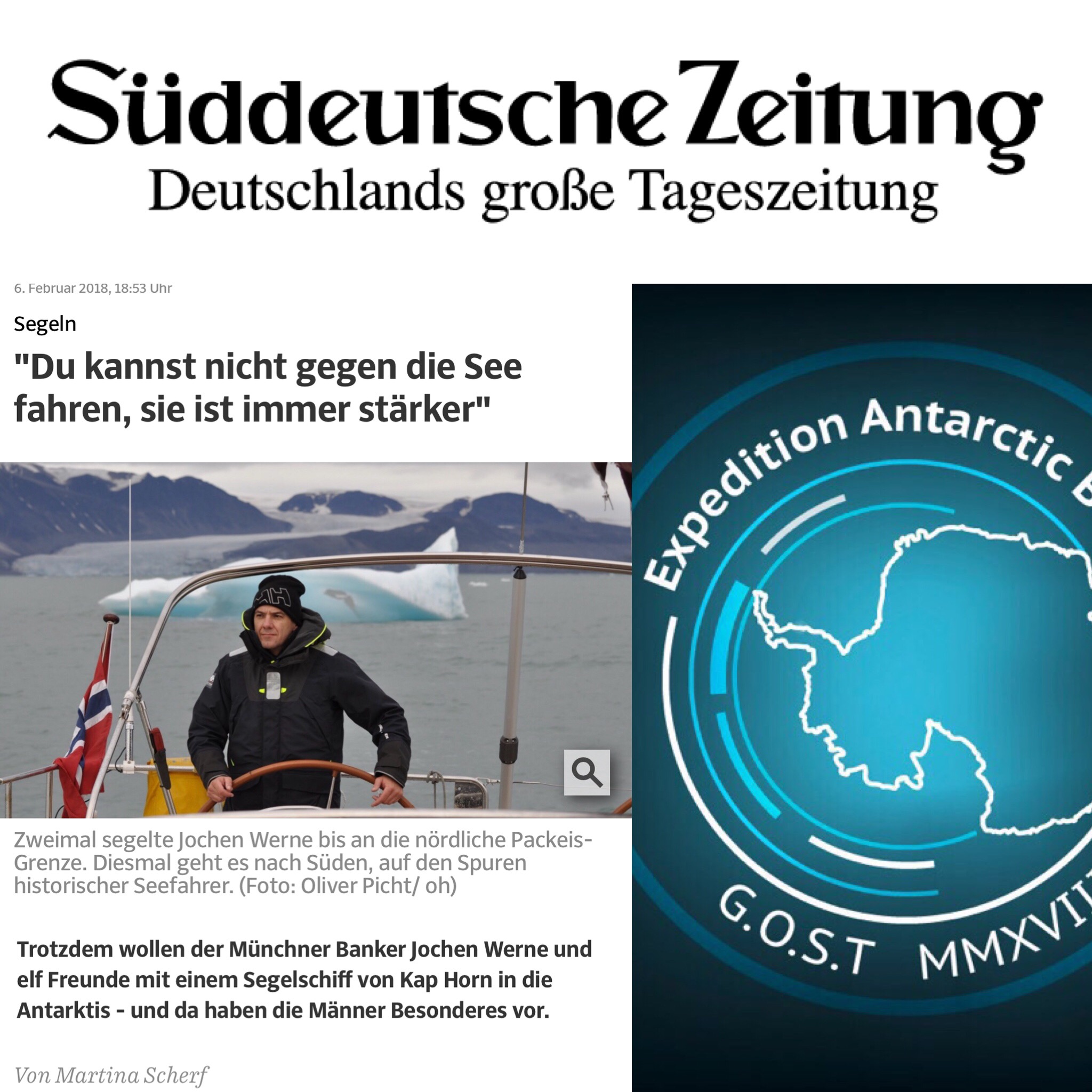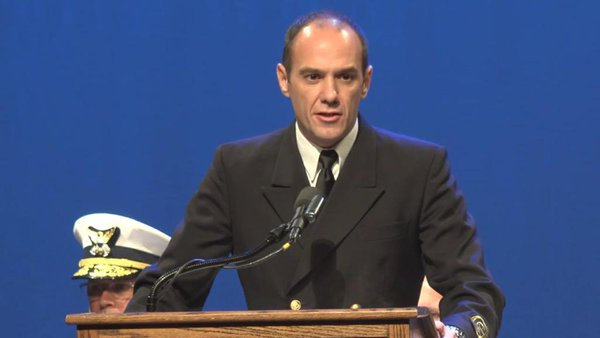It was a great day to experience live with MAN and my Prosegur colleagues how the world’s first all-electric CIT van performs. Many thanks to MAN for producing an excellent report on this great achievement, which takes our company another step closer to achieving the climate targets we set ourselves by signing the Climate Pledge.
Category: Uncategorized
From Cash & Crypto. What are the key success factors of money.
It’s a great pleasure giving beside other experts a keynote speech at this year’s Project Networks Strategy Summit 2021 Marketing & E-Commerce.
SAVE THE DATE: 18 May 2021 – 15:50 – 16:25

About the Keynote held by Jochen Werne
Platform Money: From Cash to Cryptocurrencies? Trust and security as parameters for the success of money in a digital world
It’s all about the money
Cash and digitalisation – how do they fit together?
Rethinking Cash: can cash go digital?
Too big to digitize? On the way to a digital euro
“Everything that can be digitised will be digitised,” said former Hewlett Packard boss Carly Fiorina in 2009. The trend towards digital transformation has received another enormous boost against the backdrop of the Corona pandemic. Does this also apply to something as physical as cash?
Jochen Werne, Chief Development Officer of Prosegur Germany, presents the current initiatives for a digital euro, explains the differences to other electronic means of payment, uses Facebook’s cryptocurrency “Libra” to shed light on the cornerstones of a good and bad communication strategy and gives an outlook on what the digitalisation of cash means for the business model of Germany’s market leader for cash-in-transit and cash management.
About the Strategy Summit
2020 has brought a huge surge in digitization as a result of the pandemic and has permanently changed the framework conditions for B2B marketing and digital business. This has once again accelerated the strong market dynamics, which are manifested, for example, in changed buyer behavior and in market-dominating platforms and ecosystems. At the same time, many companies in B2B have been able to benefit from strong demand even in times of Corona, eCommerce has brought revenue growth in numerous companies. Well-established processes and efficient digital sales channels are the prerequisites for this success.
What lessons can be learned from this for marketing and digital business in 2021?
“You can’t go against the sea; the sea is always stronger”
by Martina Scherf
Original in German published on February 8, 2018 in Süddeutsche Zeitung. Translated with www.DeepL.com/Translator. Photo (c) Dr. Oliver Picht
Munich banker Jochen Werne and eleven friends want to sail from Cape Horn to Antarctica on a sailing ship. It is not only the myth of historical seafaring that drives them.
“Men wanted for hazardous journey. Small wages. Bitter cold. Safe return doubtful. Honour in case of success”. With such words the British navigator Ernest Shackleton 1914 is said to have searched for men for a trip to the Southern Ocean. In the end he was honoured, but before that a dramatic struggle for survival took place. The ship got stuck in the pack ice for months until it finally sank, the men rescued themselves in open dinghies on the sea. An incredible story in which everyone survived in the end.
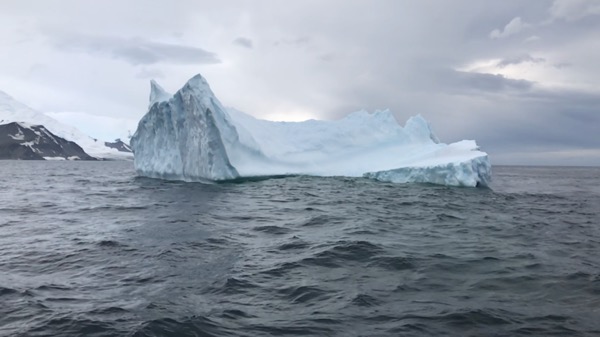
A trip to Antarctica is still dangerous today. Bitterly cold anyway. “When you approach an iceberg, it feels like putting your head in the freezer,” says Jochen Werne, 46. He knows this feeling. He’s been to the Arctic Sea twice before, all the way up to Spitsbergen. This time he is aiming in the other direction: from Cape Horn at the southern tip of South America to Antarctica. With a sailing ship. On the 12th of February it is supposed to start.
The Drake Strait, named after Sir Francis Drake, the British buccaneer and circumnavigator, is one of the most dangerous shipping routes in the world. In 14 days Werne and his eleven fellow sailors want to pass it there and back with the Santa Maria Australis, a 20-metre-long ship made of aluminium. It belongs to Wolf Kloss, who has his base in southern Chile and regularly sails in the Southern Ocean. Tourism has long since reached even the most remote regions of the world. Two years ago Kloss followed Shackleton’s footsteps to Antarctica on the occasion of its 100th anniversary.
Werne, who has always been the skipper himself on his previous tours, relies this time on the experience of the local skipper. But the preparation and logistics were in his hands, and of course he will be at the helm himself. “The last few weeks I have hardly slept more than four hours a night,” he says. They completed safety training with a life raft on Lake Starnberg. They trained themselves for medical emergencies, studied the weather conditions, drew up a plan for the procedures on board and the supporters ashore.
“We have a dentist with us who has to sew an open leg in an emergency,” he says and laughs. If necessary, a doctor in Germany can advise the colleague by e-mail or satellite telephone. On board, all crew members share the tasks, they go on watch, navigate, collect weather data, take care of the on-board technology, cook and wash dishes. “The youngest is 28, the oldest 78,” says Werne. They are entrepreneurs, bankers, managers, scientists from several countries. There will not only be canned ravioli, Werne emphasizes: “Napoleon already said: “The army marches on its stomachs”. They are not afraid of seasickness. “I also get caught by it every now and then,” he says, “but then you drink a Coke as soon as you can, eat some salt sticks and carry on. Discipline helps over everything.”
Everybody has to do everything – even tricky repairs
Also about extremely tricky situations. Once, years ago, they were lying on a Legerwall with a defective machine in the English Channel. This is what sailors call one of the most unpleasant situations that can happen to them: Wind and current press against the land, but the ship is unable to manoeuvre. “You’re hanging upside down in the engine compartment trying to repair the cooling water circuit, even if you’ve never done this before in your life.”
The focus is on sailing under extreme conditions, but Werne is also concerned with the tradition of seafaring, which he wants to keep alive, and the Corps spirit. With his cruises he wants to pay tribute to the well-known and unknown heroes of the seas. “There are no monuments at sea,” he says. That’s why he has already launched wreaths in various places, in memory of brave men on dangerous missions.
“At sea you help each other,” says Werne. He also sees himself as a peace missionary. For even after the most bitter battles, such as in the Second World War, the opponents often saved each other. He wants to remind us of this. Because they are not allowed to leave anything behind in Antarctica, no flowers, no foreign substances, they will lay down a wreath of ice. “If we make it there, we will hold a worthy ceremony in honor of the seafarers of 17 different nations.” They will hoist the flags and return them to the respective government officials upon their return.
For this purpose, the Munich-based, by profession authorized signatory and marketing director of a traditional Munich bank, has collected accompanying letters from government representatives. Prince Albert of Monaco, who is very concerned about environmental issues, supports the campaign together with the Yacht Club of Monaco. The Spanish king and other dignitaries will also be present.
Environmental protection and remembrance
The environmental idea is also important for Werne. “When you are out there, in the vastness of the ocean, and you see this infinite beauty, you ask yourself: How can man destroy that?”
Werne has therefore also won the United Nations as a partner by promoting its Clean Seas programme. The uninhabited Antarctic, only discovered 200 years ago, is under special international protection. In 1959, in the middle of the Cold War, twelve nations negotiated the Antarctic Treaty. It stipulates that the area south of the 60th parallel is exclusively reserved for peaceful use. And it contains the strictest environmental regulations. Today there are not only numerous research stations, but also a growing number of visitors to the Antarctic. But the international agreement still holds. “This is a unique and wonderful agreement,” says Werne.
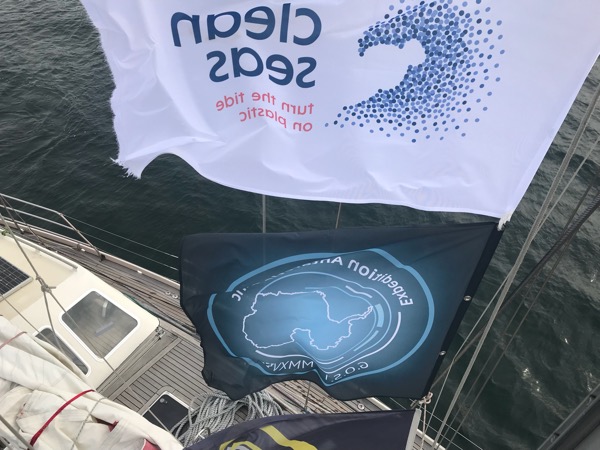
The man from Munich and his comrades-in-arms will collect plankton along the way and make it available to scientists. They will observe whales and document all their observations. They will be attending press conferences and writing to governments about the pollution of the oceans. Even plastic waste is now spreading as far as Antarctica, where birds and marine animals are suffocating.
As a child, Werne saw on television the reports of the Frenchman Jacques Cousteau, “and from then on, my mother told me, I wanted to become a ‘deep-sea diver researcher'”. Growing up in southwest Germany, just before the Swiss border, he went to the navy for two years after graduating from high school. The service on the Gorch Fock shaped him for life. But staying in the Navy didn’t seem attractive to him. “I got to know great people there,” he says, “but also some who failed because of the rigid system.” He studied economics and worked for major international banks in London and Frankfurt before coming to Munich. But seafaring didn’t let him go.
In 1999 he founded the Global Offshore Sailing Team with a friend. Professionally successful and internationally networked, he soon found like-minded people with the necessary small change and the equally great enthusiasm for extreme sailing. In 2011 and 2016 they sailed into the Arctic up to the pack ice limit.
The ice is unpredictable
What the violence of nature means in such regions, they experienced very closely. “After a few days of exploring the fog, we suddenly came out of nowhere towards icebergs,” he says. They sought shelter in a fjord, put their ship behind a floating jetty in a small harbour. But the ice followed, pushing into the fjord with mighty force. “We kept watch around the clock and pushed the ice with poles away from the ship.” It still demanded its toll. Crashing it tore the propeller of the engine from the hull, water broke in, they had to scoop for hours.
They will meet icebergs again this time. They hope for a proper distance. The Santa Maria Australis is a comfortable ship, her hull is built of several separate chambers to protect her from water ingress. She is equipped with the latest technology such as radar, satellite navigation and communication and can be followed on the Internet. It has two powerful diesel engines on board, a power generator, several battery systems, a water conditioner that turns seawater into drinking water, and heated cabins. Nevertheless, a trip to Antarctica is no walk in the park. Icebergs are unpredictable.
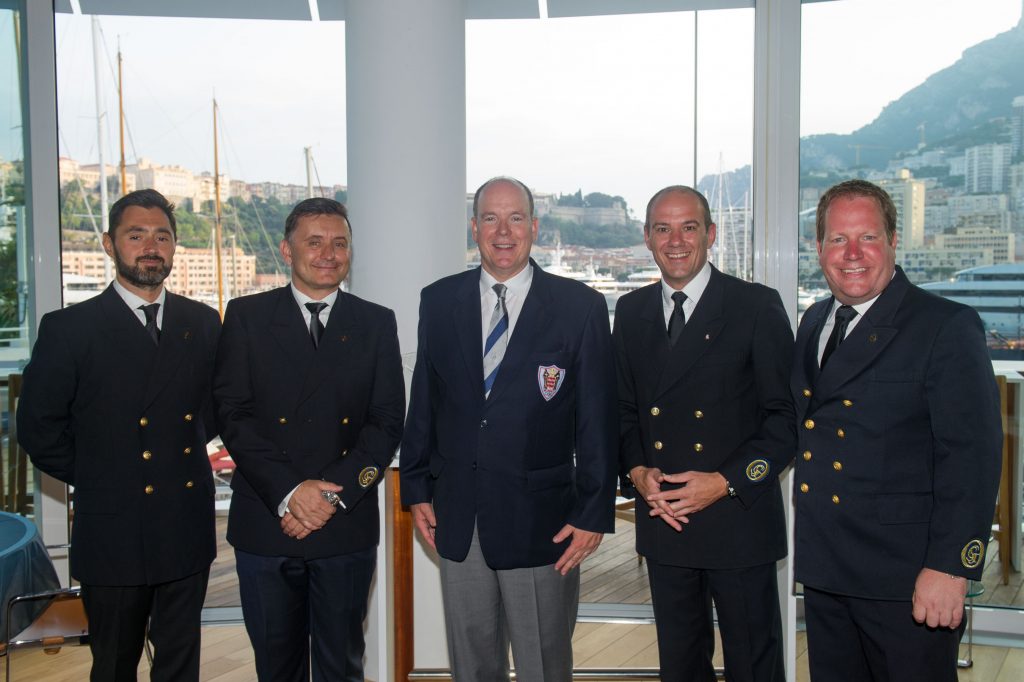
Erich von Drygalski, the Munich geographer, led the first German South Polar expedition in 1902. His ship, the Gauss, was trapped by ice on 1 March and held 50 miles off the coast for almost a year. Thanks to its rounded hull, it was not crushed but only lifted. The men had enough supplies and used the year for their research. Werne and his friends do not have that much time. But even for them, he says, “You can’t go against the sea, the sea is always stronger”.
Keynote Speech – Armed Forces Day Miami, USA 2015


